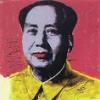-
Content count
5 -
Joined
-
Last visited
Posts posted by Fat Mao
-
-
In the Supreme Source, a translation of a Dzogchen Mind Series Tantra, the Kunjed Gyalpo, Chogyal Namkhai Norbu Rinpoche mentions that Zen and Dzogchen are not synonymous: "At heart, Zen, which without any doubt is a high and direct Buddhist teaching, is based on the principle of emptiness as explained in the sutras such as the Prajnaparamita. Even though in this regard, it is no different from Dzogchen, the particularity of Dzogchen lies in the direct introduction to the primordial state not as "pure emptiness" but rather as endowed with all the aspects of the self-perfection of energy".
I would like to point out here that these statements although accurate, are only so from the point of view of the Dzogchen Tradition. Because Namkhai Norbu is not steep in the Ch'an Tradition, it is easy for him to dismiss the "Ultimate" goal of Ch'an as something less, or at least different than Dzogchen.
The classification that he uses is a Traditional Tibetan one, not a Pan East Asian distinction.
I have read his (Namkahi Norbu) works, and if, as he claims, the basis of Ch'an is what is spoken of in the (Prajnaparamita) Sutras, then why do the Masters and Patriarchs of the Ch'an/Zen Traditions themselves claim that their lineage is transmitted without words, outside the sutras? Why is Hui Neng often depicted destroying the Prajnaparamita sutras, not protecting them and worshipping them, as is the case in the Tibetan Tradition?
Because the Dzogchen Tradition has developed a highly systamatic exegesis of the Stages leading to the Primordial State, doesn't prove that in Reality, both Traditions are not speaking of the same Reality.
Both traditions ultimately reject all Expedient devices and descriptions, including Sutra and Tantra, and talk (or not) about Reality in its Pure Undifferentiated State.
I do agree that the Tibetan Tradition has a much more developed System that leads to that final Understanding; with the understanding that the lesser practices are imperfect (Ch'an also understands this as well). Yet in the End, they are indeed the same Teaching.
As far as the statement: "rather as endowed with all the aspects of the self-perfection of energy," is concerned, I find it highly unsubstantiated, especially when comparing an expreince to other purported experiences, niether of which which can be accurately described or put into words.
Of course, all this is my own opinion, and can't hold a drop of water.
By the way, the quote from my previous post is from Longchen Rabjam (Longchenpa), a very High, enlightend Dzogchen Master. When I first heard it, I thought it must be from a Zen Master. But whats the difference anyway?
-
I have spent an extended length of time as an ordained Monastic in a Chinese Buddhist lineage that included Traditional Ch'an practice, and have since then, received many Dzogchen teachings and Transmissions from several prominent Teachers, I would like to add that, from my experience, there is ultimately very little difference in all these "classifications."
Certainly, the lineages are different, and the vocabulary varies, yet the description of the Undifferentiated Primordial Mind sounds too similar to bother speaking of different systems/traditions.
(There is a much more systematic process of steps in recieving the complete Dzogchen cycle, which is more developed than in the Ch'an lineages; in the end, Ch'an and Dzogchen share much more in common than Dzogchen and Tantra).
There are many within the Orthodox Traditions that would accuse me of minimizing the subtlties of their respective Traditions, yet there are many that would, and have, agreed.
I have also heard the assertion that Ch'an survived in Tibet as Dzogchen. The subtle, and profound differences between the Tantric and Dzogchen Traditions, reflected in the difference in the Gelugpa and Nyingma Lineages, and the subsequent controversies of sudden vs. gradual approaches to enlightenment, and the nature of the Ultimate Reality, strongly reflects the main topics of the original debate in the legendary "showdown" in Lhasa involving Ha Shang Mahayana (Chinese) and the Indian/Tibetan factions vying for the status as the legitimate representative of the Buddhist Tradition back in the day.
The similarities are too significant to dismiss outright.
Consider this,
Is it Ch'an/Zen, or is it Dzogchen; or the Tao:
"Since everything is but an illusion, Perfect in being as it is; having no good or bad, acceptance or rejection, one may well burst into Laughter."
The answer shows how not different the traditions really are.
-
College of Tao and the Integral Way
Correspondence Course & Study Groups by Email
PO Box 1222, El Prado, New Mexico, 87529, USA.
Voice Mail: 1-310-535-0636
Email [email protected]
Btw, Pat ~
Good work on the link page!

Yen Hui,
Have you taken the correspondence course? If so, what is your opinion of it? I looked up the page, and it gives the topic headings, but isn't totally clear about what will be taught. Just curious.
Thanks
-
Hi everyone! Thanks for having me. I am a long time seeker on the Path, which includes several "relationships" with other Eastern Traditions.
I have had some experience with Taoism, or am at least familiar with the basic Ideas.
I am drawn more and more to the Freedom of the Tao, and, the Simplicity.
I hope to learn more about the Tradition from some of you in this Forum.


Tibetan Buddhism
in General Discussion
Posted
Sean, I like the point you are making here: the hidden influence of Taoism on both Traditions. I have also come to believe this as well, and is one of the reasons I have become more interested in Taoism in the last few years.
All of these Traditons are wonderful, and have given so much to Seekers on the Path.